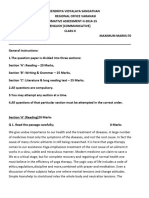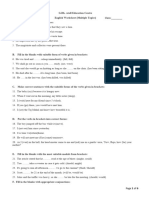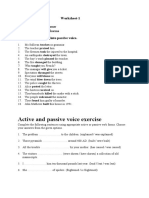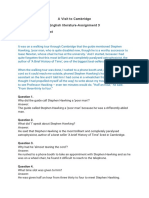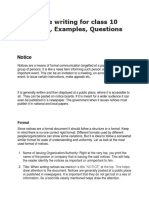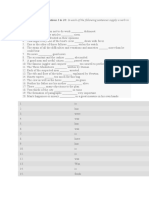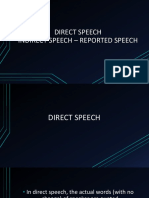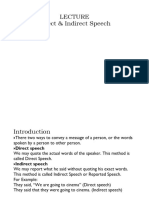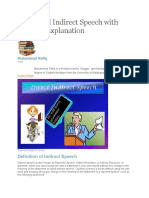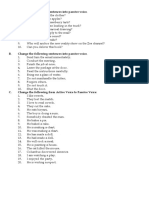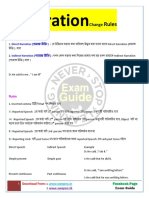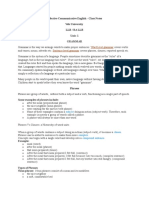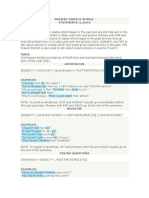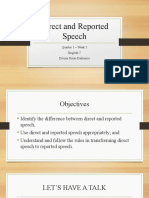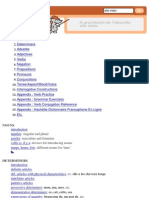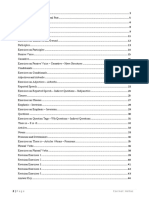0% found this document useful (0 votes)
2K views5 pagesNARRATION
Direct speech reports the exact words of the speaker using quotation marks, while indirect speech conveys the meaning of what was said without quotation marks. There are some key rules for changing verbs and pronouns when converting between direct and indirect speech, such as changing present tense verbs to past tense if the reporting verb is in the past tense. Pronouns may change depending on whether they are first, second, or third person in relation to the subject and object of the reporting clause.
Uploaded by
Rashmi KumariCopyright
© © All Rights Reserved
We take content rights seriously. If you suspect this is your content, claim it here.
Available Formats
Download as PDF, TXT or read online on Scribd
0% found this document useful (0 votes)
2K views5 pagesNARRATION
Direct speech reports the exact words of the speaker using quotation marks, while indirect speech conveys the meaning of what was said without quotation marks. There are some key rules for changing verbs and pronouns when converting between direct and indirect speech, such as changing present tense verbs to past tense if the reporting verb is in the past tense. Pronouns may change depending on whether they are first, second, or third person in relation to the subject and object of the reporting clause.
Uploaded by
Rashmi KumariCopyright
© © All Rights Reserved
We take content rights seriously. If you suspect this is your content, claim it here.
Available Formats
Download as PDF, TXT or read online on Scribd
/ 5










